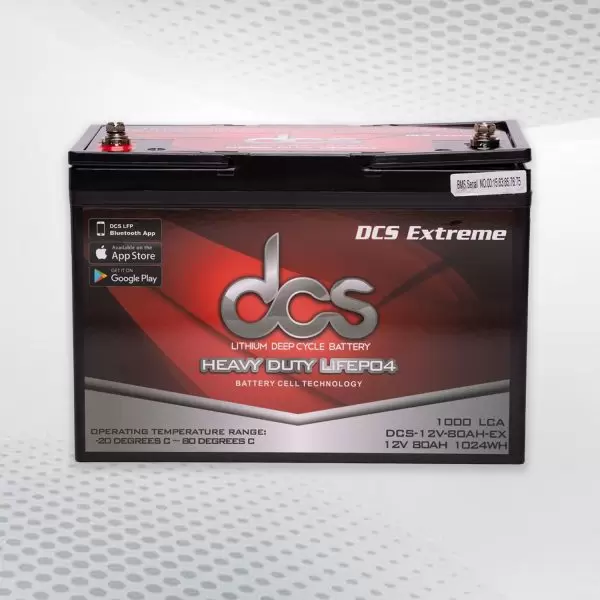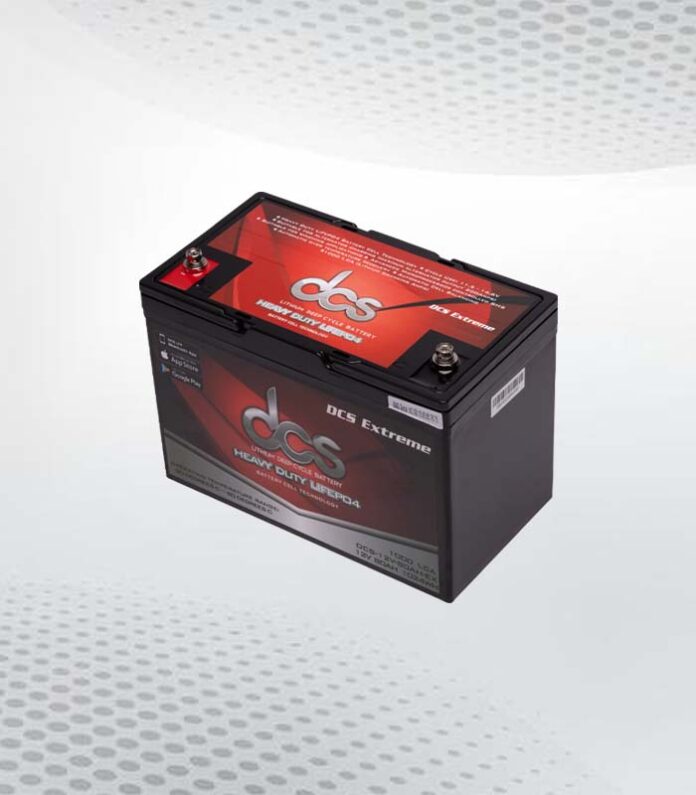Embarking on outdoor adventures can be an exciting and rejuvenating experience, but it’s important to have the right equipment to power through your journey. This is where deep cycle batteries come in. Whether you’re going camping, boating, or off-grid living, these batteries are designed to provide long-lasting and reliable energy for your adventures. In this guide, we’ll take a closer look at the basics of deep-cycle batteries, their benefits, and how to choose the right one for your needs. So, let’s dive in and discover how you can power up your adventures with these essential batteries!
What are Deep-Cycle Batteries?
Deep-cycle batteries are specifically designed to deliver sustained power over a long period. Unlike standard batteries, built for short bursts of energy, deep-cycle batteries are perfect for applications that require consistent, reliable power, such as camping, boating, or off-grid living. So, what sets deep-cycle batteries apart from other types of batteries? Deep-cycle batteries are designed to handle multiple discharge and recharge cycles without losing their capacity.
This means you can fully discharge and recharge them multiple times without negatively affecting their performance. In addition, deep-cycle batteries are constructed with thicker plates and denser electrolyte solutions, making them more robust and capable of handling heavy usage. Different types of deep-cycle batteries are available, including flooded lead acid, AGM, gel, and lithium-ion batteries. Each type has its advantages and applications, so choosing the right one for your specific needs is important.
Differences between Deep-Cycle and Standard Batteries
When it comes to batteries, not all are created equal. Deep-cycle batteries stand apart from standard batteries in several key ways. First and foremost, deep-cycle batteries are built to deliver sustained power over an extended period, whereas standard batteries are designed for short bursts of energy. This makes deep-cycle batteries ideal for applications that require long-lasting power, such as recreational vehicles, boats, and off-grid solar systems. Another major difference is the ability of deep-cycle batteries to withstand multiple discharge and recharge cycles without losing their capacity.
This means you can deeply discharge and recharge them multiple times without negatively affecting their performance. On the other hand, standard batteries are not built to withstand this kind of heavy usage. Deep-cycle batteries are constructed with thicker plates and denser electrolyte solutions, allowing them to handle heavy usage demands. Standard batteries, in comparison, are less robust and may not be able to provide the sustained power that deep-cycle batteries can.
Types of Deep-Cycle Batteries
Deep-cycle batteries come in different types, each with its characteristics and applications. Here are some of the most common types of deep-cycle batteries:
Flooded Lead Acid Batteries:
Flooded Lead Acid Batteries are the most traditional and affordable deep-cycle batteries. They have a liquid electrolyte that must be periodically checked and topped up. While they require regular maintenance, they offer excellent reliability and withstand high discharge rates.
AGM (Absorbent Glass Mat) Batteries:
AGM batteries are maintenance-free and have a high tolerance for deep discharges. They use a specialized glass mat separator to hold the electrolyte, making them spill-proof and vibration-resistant. AGM batteries are commonly used in marine applications, RVs, and off-grid solar systems.
Gel Batteries:
Gel batteries use a gel electrolyte, making them leak-proof and vibration-resistant. They are highly durable and can tolerate deep discharges without losing their capacity. Gel batteries are often used in deep-cycle applications where vibration and shock are a concern, such as in golf carts and electric wheelchairs.
Lithium-Ion Batteries:
Lithium-ion batteries are the newest and most advanced type of deep-cycle batteries. They offer higher energy density, longer cycle life, and faster charging than traditional lead-acid batteries. Lithium-ion batteries are lightweight, compact, and maintenance-free, making them ideal for portable and off-grid applications.
Choosing the Right Size for Your Needs
When choosing the right size of deep-cycle battery for your needs, there are a few important factors to consider. The capacity of a deep-cycle battery is typically measured in amp-hours (Ah), which represents the amount of energy the battery can deliver over a specified period.
To determine the right size for your needs:
- Start by estimating your power consumption.
- Consider the devices and appliances you will be running and their power requirements.
- Add up the total energy consumption in amp-hours per day to get an idea of the capacity you will need.
It’s also important to consider the depth of discharge (DOD) you plan to use. DOD refers to how much of the battery’s total capacity you plan to use before recharging it. A higher DOD requires a larger capacity battery to ensure you have enough power. Consider the length of time you plan to be off-grid or away from a charging source. If you plan to be out for longer, you may need a larger battery to ensure you have enough power to last.
Maintaining Your Lithium Batteries
Lithium batteries are known for their exceptional performance and longevity, but they still require proper maintenance to ensure their optimal lifespan and reliability. Here are a few tips to help you maintain your lithium-ion batteries and get the most out of them.
- It’s important to charge your lithium-ion batteries regularly. Unlike other battery types, lithium-ion batteries don’t require complete discharge before recharging. It’s better to recharge them before they reach a low state of charge. This will help prolong their overall lifespan and prevent any potential damage.
- Avoid exposing your lithium-ion batteries to extreme temperatures. High temperatures can cause the battery to degrade faster, while low temperatures can affect its performance. Store and use your lithium-ion batteries in a temperature-controlled environment to maintain their efficiency and longevity.
- It’s crucial to protect your lithium-ion batteries from physical damage. Avoid dropping them or subjecting them to any harsh impacts. Stop using the battery immediately and seek professional assistance if you notice any signs of damage, such as swelling or leakage.
- Using the correct charger for your lithium-ion batteries is recommended. Using a charger incompatible with your battery can lead to overcharging or undercharging, damaging the battery or reducing its performance over time. Always follow the manufacturer’s guidelines for charging and use the appropriate charger for your lithium-ion batteries.

Advantages of Deep-Cycle Batteries
Deep-cycle batteries offer numerous advantages, making them the go-to choice for powering outdoor adventures. Here are some of the key benefits you can expect when using deep-cycle batteries:
Long-lasting power:
Deep-cycle batteries are designed to provide sustained power over an extended period. This means you can rely on them to keep your devices, appliances, and equipment running smoothly for hours. Whether camping in the wilderness or sailing on a boat, deep-cycle batteries ensure a continuous and reliable power source.
Deep discharge capability:
Unlike standard batteries, deep-cycle batteries can handle deep discharges without losing their capacity. This means you can use more of the battery’s total capacity before needing to recharge it. This flexibility is especially beneficial in off-grid situations where access to charging sources may be limited.
Durability and resilience:
Deep-cycle batteries are built to withstand heavy usage demands. With their thicker plates and denser electrolyte solutions, these batteries can handle high discharge rates, vibration, and shock without compromising performance. This makes them ideal for rugged outdoor environments where durability is essential.
Versatility:
Deep-cycle batteries come in various types, such as flooded lead acid, AGM, gel, and lithium-ion, each with its advantages and applications. This versatility allows you to choose the type of battery that best suits your specific needs and budget. Whether you’re powering a marine vessel, RV, or off-grid solar system, you have a deep-cycle battery.
Disadvantages of Deep-Cycle Batteries
While deep-cycle batteries offer numerous advantages for powering outdoor adventures, there are a few disadvantages.
- One major disadvantage is the initial cost. Deep-cycle batteries are more expensive than standard batteries due to their advanced technology and longer lifespan. However, it’s important to note that their extended performance and durability often offset the higher upfront cost.
- Another drawback is their weight and size. Deep-cycle batteries are typically larger and heavier than standard batteries, making them cumbersome to transport and install. If you need more space or a portable power solution, this may be a concern.
- Maintenance is also a factor to consider. While some deep-cycle batteries, like AGM and gel batteries, are maintenance-free, others, such as flooded lead-acid batteries, require regular monitoring and electrolyte top-ups. This can be time-consuming and may require additional equipment or knowledge.
- Deep-cycle batteries have a finite lifespan. Over time, their capacity will decrease, and eventually, they will need to be replaced. However, with proper maintenance and usage, deep-cycle batteries can last for many years before needing to be replaced.
FAQs
Can I use a deep-cycle battery for my car?
Deep-cycle batteries are not recommended for vehicles that require a starting battery, such as cars or motorcycles. These batteries are designed to deliver a steady and consistent power flow over an extended period. In contrast, starting batteries are designed to deliver a high burst of power to start an engine. Using a deep-cycle battery as a starting battery may reduce performance and potentially damage the battery.
How long do deep-cycle batteries last?
The lifespan of a deep-cycle battery can vary depending on factors such as usage, maintenance, and the type of battery. On average, a well-maintained deep-cycle battery lasts 4 to 8 years. Proper charging, regular maintenance, and avoiding deep discharges can prolong the battery’s life.
Can I mix different types of deep cycle batteries?
It is generally recommended to avoid mixing different types of deep cycle batteries in a battery bank. Each battery type has its unique characteristics and charging requirements, and mixing different types may result in unequal charging and reduced overall performance. Sticking with one type of deep-cycle battery is best for optimal performance and efficiency.
Conclusions
Deep-cycle batteries are crucial for anyone looking to power their outdoor adventures. With their ability to withstand multiple discharge and recharge cycles, deep-cycle batteries offer durability and resilience in rugged environments. While they may come with a higher upfront cost and require maintenance, the advantages of deep-cycle batteries far outweigh the drawbacks. So, whether exploring the great outdoors or living off the grid, power up your adventures with these essential batteries!

